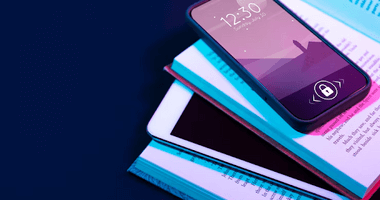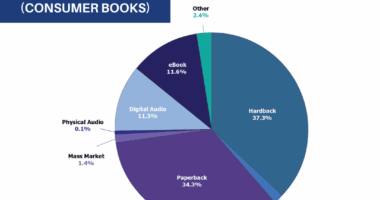In an era dominated by screens, where digital devices have infiltrated almost every aspect of our lives, questions arise about their impact on our mental health. While research underscores the mental health benefits of reading, there are many who tend to opt for digital devices like smartphones and tablets over traditional books. The digital mode of learning is becoming prominent for the students too, something that may have lightened their backpack load but has also presented them a new challenge, that of navigating a sea of digital distractions.
As PhychologyToday reported, social media, a prominent source of short-form content, inhibits attention spans and often dilutes language, favoring informal, conversational styles. This style of writing, seen in scrolling blurbs, offers less exposure to rich vocabulary and complex concepts, making lengthy books more challenging for such people.
Research indicates that comprehension is six to eight times better with physical books than with e-readers. Despite claims of faster reading on devices, distractions such as social media scrolling, advertisements, and email notifications hinder memory retention. Physical books provide an immersive experience, enhancing content absorption and recall.
The tactile experience of holding a book, turning pages, and highlighting passages is integral to memory formation. Researchers note that turning pages creates a mental “index,” linking visual information to specific pages and aiding in better information retention.
Beyond the cognitive benefits, reading physical books offers a uniquely social experience absent in e-readers. Browsing bookstore shelves, seeking recommendations from librarians, and sharing favorite books with friends foster connections among book lovers. E-readers, with their digital downloads, bypass these opportunities for meaningful interactions.
Fortunately, despite the convenience of digital alternatives, a strong preference for print books persists. In a study, 92 percent of students expressed a preference for print books over e-books. The act of holding a book, appreciating cover art, and witnessing the visual progression of a bookmark contributes to a unique reading experience that resonates with readers.
As the debate between digital and print continues, the enduring allure of physical books prevails, not just for their cognitive benefits but for the social, tactile, and sensory experiences they provide.
With a keen interest in tech, I make it a point to keep myself updated on the latest developments in technology and gadgets. That includes smartphones or tablet devices but stretches to even AI and self-driven automobiles, the latter being my latest fad. Besides writing, I like watching videos, reading, listening to music, or experimenting with different recipes. The motion picture is another aspect that interests me a lot, and I'll likely make a film sometime in the future.





